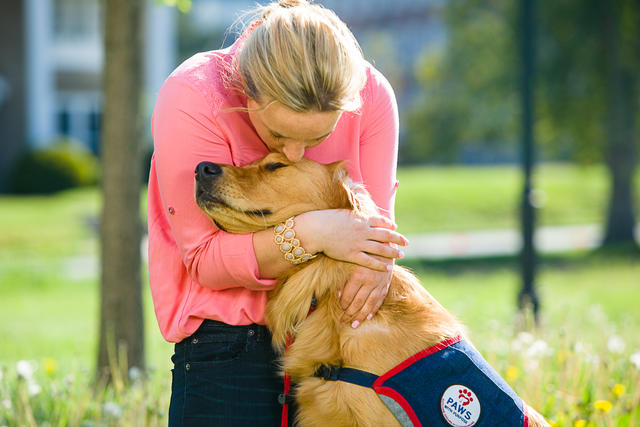With dog flu spreading in nearby states, UKAg pathologist urges awareness
With dog flu spreading in nearby states, UKAg pathologist urges awareness


Canine influenza is on the move in the United States. A new strain of the flu has led to the death of eight dogs and sickened more than 1,700 in the Chicago area. Now dogs in other states including Wisconsin, Georgia, Texas, Ohio and Indiana are getting sick. Authorities are not yet sure if the strain of the virus is the same, but are urging awareness.
University of Kentucky Veterinary Diagnostic Lab pathologist Lynne Cassone said there is no reason to panic, but dog owners should be vigilant.
“The prevalent strain in this outbreak is H3N2, a new strain previously only seen in Asia,” Cassone said. “It causes symptoms similar to flu in humans – coughing, sneezing, runny nose and eyes, and fever. This virus doesn’t infect people, and while it has been reported to infect domestic cats in Asia, there have been no reported infections in cats in the United States.”
So far, the virus has not been diagnosed in Kentucky dogs, but its presence in bordering states is reason for concern. Since the strain is highly contagious, dog owners should take precautions to minimize its spread. Cassone said the greatest risk is through nose-to-nose contact, but even sharing toys or a water bowl, or being in a confined space with an infected dog can allow transmission of the virus between dogs. Owners need to limit these interactions to prevent and reduce spread of disease.
“The influenza vaccine currently available to dog owners is for a different strain, H3N8. It is not yet known whether this vaccine works against this new virus,” Cassone said. “But if your dog is routinely exposed to other dogs at dog shows, doggy day care, dog parks, or even trips to the local pet store, it’s worth getting the vaccine, which has rare, mild side effects, and may offer some protection against severe, possibly fatal, infection.”
Puppies and dogs with compromised immune systems are most likely candidates to get sick from the virus. The incubation period is two to three days and it’s most contagious in the first four days of infection. Although humans can’t be infected, they can certainly be carriers of this flu. It’s best for dog handlers to wash their hands immediately after having contact with an animal, even if it doesn’t appear sick. The virus can live in the environment for up to 48 hours.
“The most important thing you can do if you suspect your dog has the flu is to contact your veterinarian,” Cassone emphasized. “The UK VDL offers canine influenza testing for practicing veterinarians.”
The UK VDL is part of the UK College of Agriculture, Food and Environment. The lab is part of a larger network, the National Animal Health Laboratory Network, which monitors animal health and disease throughout the country.
Extension


